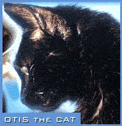Dr. Melissa Miller–a wearer of multiple University of Florida hats: research scientist, wildlife ecologist with the school’s Institute of Food and Agricultural Sciences, lead investigator on a project that employs Artificial Intelligence technology seeking to halt the growing population of yet another invasive species, the Argentine Black and White Tegu—describes some of the tasks associated with each of those hats.  Miller also outlines some of the research projects she’d undertaken before tackling the Tegu investigation,
Miller also outlines some of the research projects she’d undertaken before tackling the Tegu investigation, noting she began specializing over the years in studying invasive species. She mentions she’s held a longtime passion for reptiles, dating back to her fascination for snakes—catching them in coffee cans–while growing up in Ohio. Perhaps unsurprisingly, Miller later shares that she currently keeps snakes at her home: It was an aside, really, while commenting on people who’ve obtained–often through the exotic pet trade–a young Burmese Python or Tegu, and decided their companion had become too big or too aggressive or too scary to continue living with, releasing them into the wild, commonly in or around the Everglades. This group largely constitutes folk who entered the realm of reptile ownership largely unencumbered by significant information or preparation. They’re caught off-guard by the challenges their pets start to present, and then they dump them—adding to the population of invasive species—whereas hobby-herpetologists like Miller, are fully knowledgeable about their reptilian charges, remaining unfazed by the animals growing larger or more hostile. Miller further traces the story
noting she began specializing over the years in studying invasive species. She mentions she’s held a longtime passion for reptiles, dating back to her fascination for snakes—catching them in coffee cans–while growing up in Ohio. Perhaps unsurprisingly, Miller later shares that she currently keeps snakes at her home: It was an aside, really, while commenting on people who’ve obtained–often through the exotic pet trade–a young Burmese Python or Tegu, and decided their companion had become too big or too aggressive or too scary to continue living with, releasing them into the wild, commonly in or around the Everglades. This group largely constitutes folk who entered the realm of reptile ownership largely unencumbered by significant information or preparation. They’re caught off-guard by the challenges their pets start to present, and then they dump them—adding to the population of invasive species—whereas hobby-herpetologists like Miller, are fully knowledgeable about their reptilian charges, remaining unfazed by the animals growing larger or more hostile. Miller further traces the story
 of the Tegu status as an invasive species in south Florida, noting that efforts to contain that expanding population were initially undertaken with traditional traps. To advance beyond that limited place, she recalls, her team began pursuing aa collaboration with Wild Vision Systems, a company that specializes in creating AI-powered smart traps for invasive species. After some trial-and-error refinements, the trap at the center of the current UF project for which Miller serves as lead investigator works this way: details and images of the distinctive-looking Argentine Black and White Tegu are fed into the AI technology that’s paired with the trap (it loosely resembles the device used to capture feral cats)…it recognizes when a Tegu is inside—and clamps shut! The trap sends a message, along with a picture to Miller’s group, indicating an animal has been caught, and showing whether it’s the intended tegu or another critter, which can be released remotely. Miller brings the conversation to a close addressing the virtues and long-term implications of this smart trap. (https://www.wildvision.ai/, https://crocdoc.ifas.ufl.edu/projects/Argentineblackandwhitetegus/) (Photo credits: University of Florida IFAS, Wild Vision Systems)
of the Tegu status as an invasive species in south Florida, noting that efforts to contain that expanding population were initially undertaken with traditional traps. To advance beyond that limited place, she recalls, her team began pursuing aa collaboration with Wild Vision Systems, a company that specializes in creating AI-powered smart traps for invasive species. After some trial-and-error refinements, the trap at the center of the current UF project for which Miller serves as lead investigator works this way: details and images of the distinctive-looking Argentine Black and White Tegu are fed into the AI technology that’s paired with the trap (it loosely resembles the device used to capture feral cats)…it recognizes when a Tegu is inside—and clamps shut! The trap sends a message, along with a picture to Miller’s group, indicating an animal has been caught, and showing whether it’s the intended tegu or another critter, which can be released remotely. Miller brings the conversation to a close addressing the virtues and long-term implications of this smart trap. (https://www.wildvision.ai/, https://crocdoc.ifas.ufl.edu/projects/Argentineblackandwhitetegus/) (Photo credits: University of Florida IFAS, Wild Vision Systems)
 ALSO: I spoke with Marion Gwizdala, CEO of Advocates for Service Animal Partners Inc. (ASAP). Gwizdala explained that Tampa-based ASAP is a national nonprofit dedicated to securing, protecting, and advancing the rights and responsibilities of service animal handlers and the businesses they patronizeTampa-based. Gwizdala outlines the new resources for businesses—table tents and other materials—ASAP was rolling out on its website (https://serviceanimals.info/) that very day, tied to September being Service Dog Awareness Month. He mentions other ways ASAP can help disabled individuals and businesses sort out their respective rights under the Americans with Disabilities Act, including its Hotline: 855-ASAP211.
ALSO: I spoke with Marion Gwizdala, CEO of Advocates for Service Animal Partners Inc. (ASAP). Gwizdala explained that Tampa-based ASAP is a national nonprofit dedicated to securing, protecting, and advancing the rights and responsibilities of service animal handlers and the businesses they patronizeTampa-based. Gwizdala outlines the new resources for businesses—table tents and other materials—ASAP was rolling out on its website (https://serviceanimals.info/) that very day, tied to September being Service Dog Awareness Month. He mentions other ways ASAP can help disabled individuals and businesses sort out their respective rights under the Americans with Disabilities Act, including its Hotline: 855-ASAP211.
COMEDY CORNER: Greer Barnes’ “We Gotta Save The Bees” (https://www.instagram.com/greerbarnes)
MUSIC: Rebekah Pulley’s “Talking Animals Theme”
NAME THAT ANIMAL TUNE: We didn’t play “Name That Animal Tune” today.
AUDIO ARCHIVE:



